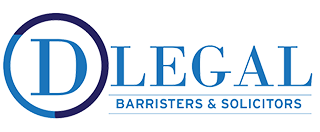Navigating the legal system can feel complex, but understanding the process and your potential strategies can put you at ease at an early stage.
Personal strengths of a family lawyer
As your lawyer, we will move beyond transactional legislation and into the personal side of working with you. You can rely on our strong interpersonal skills and strategic advice, considering your circumstances and our experience in the field, that can set the tone and make or break your case.
Here’s a simplified overview:
The Stages:
- Initiation: We’ll define the issue, gather evidence, and explore options like negotiation or filing a lawsuit.
- Discovery: We collect detailed information through documents, witness interviews, and legal requests.
- Pre-Trial: We refine arguments, file motions, and potentially engage in mediation or settlement talks.
- Trial (if needed): We present evidence, argue your case, and aim for a favourable verdict.
- Post-Trial: We handle appeals, enforce judgments, or finalise agreements as per the outcome.
Strategic Choices:
Early Resolution: Depending on your goals, we can pursue options like negotiation, mediation, or arbitration to resolve the issue swiftly and potentially avoid trial.
Litigation: We may recommend going to court if other avenues prove unsuccessful or if achieving justice requires a formal judgment.
Defence Strategies: We’ll build a strong defence tailored to your situation, utilising legal arguments, evidence challenges, and procedural tactics.
Remember: Your active involvement is crucial. We’ll keep you informed, explain options, and respect your decisions throughout the process.
This is a general overview. The specific strategies and timeline will depend on your unique case and legal system. We’ll provide detailed analysis and guidance as we move forward.
Doing it yourself [Unrepresented or self-represented litigants]
While navigating the legal system can be complex, many people choose to represent themselves. However, research shows that individuals managing their cases face particular challenges. Navigating procedures, understanding deadlines, and presenting evidence effectively can be difficult, potentially prolonging the process incurring additional expenses and jeopardising your case.
Here are some possible outcomes to consider:
- Increased complexity:Legal procedures can be intricate and navigating them without guidance can lead to errors or missed opportunities.
- Delays:Unfamiliarity with deadlines and filing requirements can unintentionally prolong the case.
- Higher costs:Procedural mistakes or missed opportunities for cost-saving strategies can lead to unnecessary expenses.
- Trial complexities:While taking a case to trial is a valid option, unrepresented litigants may face difficulties presenting their case persuasively.
Importantly, managing your case can also have unforeseen consequences:
- Inadvertently weakening your case: Missing deadlines, overlooking evidence, or violating legal procedures can negatively impact your position.
- Reduced understanding of options: Legal complexities might limit your awareness of potential solutions or strategies.
Seeking legal guidance can mitigate these challenges and provide numerous benefits:
- Expert navigation:Lawyers can streamline the process, ensuring deadlines and procedures are followed correctly.
- Timely completion:Legal expertise can help avoid delays and move the case forward efficiently.
- Cost-effective strategies:Lawyers can advise on cost-saving options and help avoid unnecessary expenses.
- Stronger case presentation:Legal professionals can help gather evidence, build arguments, and present your case effectively, even in court.
- Informed decision-making:Lawyers can explain your options and legal rights, empowering you to make informed decisions throughout the process.
Whether to represent yourself or seek legal advice is a personal decision. However, understanding the potential challenges and benefits can help you make an informed choice and maximise your chances of a successful outcome.
Key Takeaways:
- The legal process involves several stages, from negotiation to potential trial and judgment.
- You have options at each stage, and we’ll explore the best strategies based on your needs and goals.
- Your active participation and open communication are essential for a successful outcome.
- Do not do it yourself. As an example, if you have a Medical issue, you should consult a medical practitioner.
We’re here to guide you every step of the way. Please don’t hesitate to ask questions and share your concerns. Together, we’ll navigate the legal journey effectively.
Please note: This is not legal advice; you should always consult your lawyer for specific guidance on your case.
